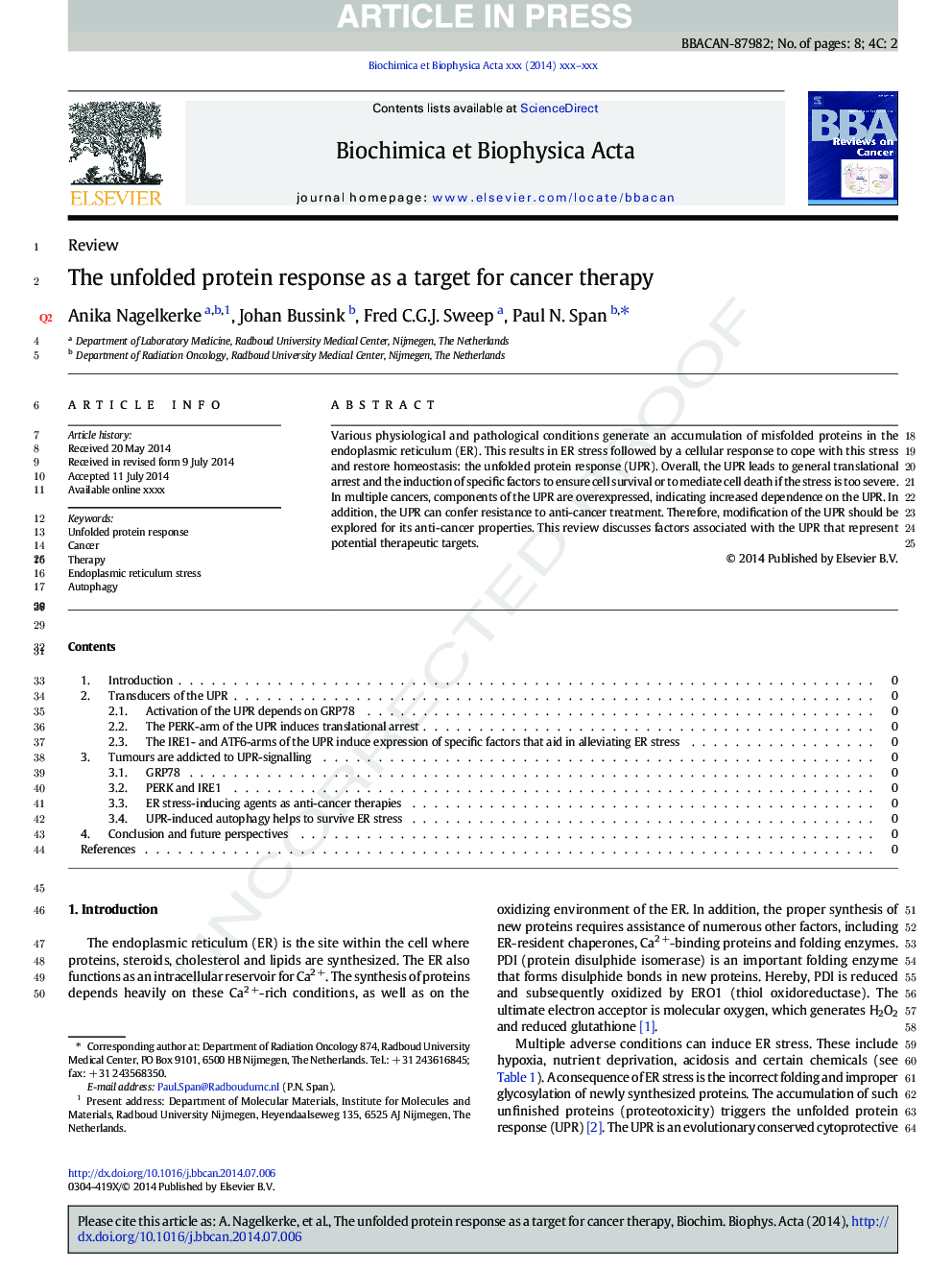| Article ID | Journal | Published Year | Pages | File Type |
|---|---|---|---|---|
| 8429408 | Biochimica et Biophysica Acta (BBA) - Reviews on Cancer | 2014 | 8 Pages |
Abstract
Various physiological and pathological conditions generate an accumulation of misfolded proteins in the endoplasmic reticulum (ER). This results in ER stress followed by a cellular response to cope with this stress and restore homeostasis: the unfolded protein response (UPR). Overall, the UPR leads to general translational arrest and the induction of specific factors to ensure cell survival or to mediate cell death if the stress is too severe. In multiple cancers, components of the UPR are overexpressed, indicating increased dependence on the UPR. In addition, the UPR can confer resistance to anti-cancer treatment. Therefore, modification of the UPR should be explored for its anti-cancer properties. This review discusses factors associated with the UPR that represent potential therapeutic targets.
Related Topics
Life Sciences
Biochemistry, Genetics and Molecular Biology
Cancer Research
Authors
Anika Nagelkerke, Johan Bussink, Fred C.G.J. Sweep, Paul N. Span,
